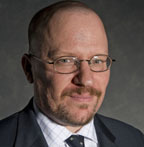The National Education Association boasts a membership of more than 3 million teachers and is one of the most powerful interest groups within the Democratic Party. But despite its size and influence, the nation’s largest teachers union has positioned itself well outside America’s political mainstream.
The NEA is so far out, the New York Times reported union officials didn’t invite President Obama or U.S. Secretary of Education Arne Duncan to speak at the union’s annual convention in New Orleans this year out of concern the 9,000 delegates might heckle them off the stage.
Never mind that Obama poured $100 billion in federal stimulus money into education last year, or that he wants to increase the Education Department’s budget to nearly $50 billion in 2011 even as the federal budget deficit tops $1.3 trillion. And pay no attention to the unprecedented steps Obama has taken to empower federal bureaucrats to usurp state and local education policymaking, which the NEA supports. To hear the nation’s largest teachers union tell it, the president’s policies mean the end of public education.
The NEA is so far out that Dennis Van Roekel, the union’s president, lamented in his keynote address to convention delegates last week, “our members face the most anti-educator, anti-union, anti-student environment that I have ever experienced.” Nonsense: Americans love teachers and care deeply about students.
If anti-union sentiment is on the rise, the blame rests entirely on Van Roekel and his ilk. They have all but purged the word “compromise” from their lexicons and instead continually insist taxpayers pour more money into a failing system.
The NEA is so far out that delegates on July 4 passed a “no confidence” resolution against Obama’s Race to the Top grant program. Now, there is plenty wrong with the $4.35 billion program. Overly prescriptive rules, top-down mandates disguised as guidelines—including a requirement that states “voluntarily” adopt national reading and math standards—and “stakeholder buy-in” that gives the union veto power over a state’s application are just a few of the problems.
But those weren’t what the NEA denounced. The union argues any competition “undermines public education.” The resolution’s author actually claims the reforms Race to the Top encourages—more charter schools, greater teacher accountability—”brutalize” students and educators.
The NEA is so far out of the mainstream, delegates actually considered spending $3.5 million—characterized as “low-cost”—on an advertising campaign to “counter the media propaganda” of several acclaimed documentaries promoting school reform, including The Cartel, Waiting for Superman, The Lottery, and Teached. Those films dare to question the union orthodoxy that the cure for what ails public education is more taxpayer money, more benefits for teachers, and fewer choices for parents. In a moment of sanity, or maybe impatience to adjourn, delegates defeated the measure.
For four days, speaker after speaker marched to the podium in New Orleans to fulminate against charter schools, merit pay, and virtually any other effort to change rules protecting incompetent instructors from layoffs while punishing energetic young teachers—reforms that have won bipartisan support this year.
Extremism in defense of union perks is no virtue. The NEA and its counterpart, the American Federation of Teachers, are lobbying Congress hard for a $10 billion federal bailout—another infusion of cash to let states put off difficult cuts born of fiscal irresponsibility and union greed.
The unions say the money will save up to 300,000 teachers from getting pink slips. But if the unions would agree to pay for part of their members’ health insurance and forego cost of living increases—as millions of Americans have done—layoffs would be unnecessary.
Fact is, union leaders are less worried about protecting teachers and students from being brutalized than about protecting and expanding their political power, which depends on money. The NEA spent $50 million in 2008 to help elect Obama. It expects to be rewarded for its generosity. If that means alienating the mainstream public, so be it.
Ben Boychuk ([email protected]) is managing editor of School Reform News.




